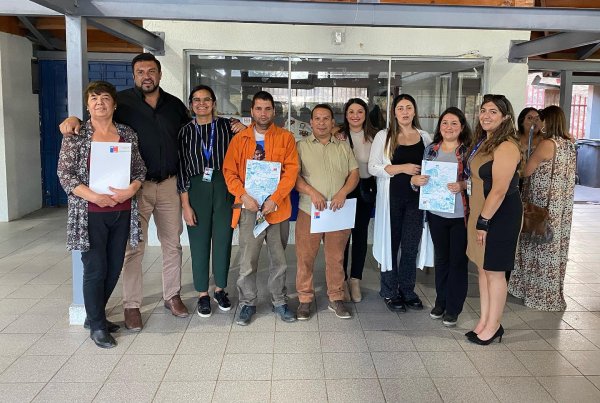Families from San Nicolás and Coelemu belonging to the Precarious Settlements program of the Ministry of Housing and Urbanism, received their certificates of housing subsidies framed in the Solidarity Fund for Housing Choice, regulated by the DS49.
In the case of San Nicolás, 23 certificates were delivered, while in Coelemu there were 20 subsidies.
Puente Ñuble 2 and Puente Ñuble 3 of San Nicolás entered the National Camp Registry in 2018 and 2022 respectively. Since 2015, they have remained on publicly owned land in a strip next to Ruta 5 Sur. They receive water in cistern trucks, have a regular electrical situation and still have cesspools. The intervention strategy chosen for these camps is relocation, since the place they occupy will be expropriated by the MOP for the widening of Route 5 south section Talca-Chillan Viejo.
Regarding Coelemu, these are the Las Pataguas and Los Leones camps that entered the Camp Cadastre in 2018. They are located in a place where the use of land for housing construction is not allowed. In both camps there have been previous interventions through the Minvu Primary Habitability program that allowed them to acquire security cameras and LED solar lights. Resources are currently being transferred from the Government to the municipality to carry out a soil study and provide a way out of the precarious situation in which the families live.
The Seremi of Housing and Urbanism, Antonio Marchant highlighted the delivery of the certificates and said that these families “had been waiting for years for a housing solution. For our Ministry it is a priority to be able to reach that solution and to be able to advance in a Ñuble without camps”.
Along these lines, the director of Serviu Ñuble, Roberto Grandón, highlighted that one of the specific objectives of the Housing Emergency Plan “is to contribute to the reduction of the quantitative housing deficit, particularly that derived from the factor of close families, overcrowding, precarious habitability and camps . This will make it possible to reduce urban-territorial inequalities and meet the housing needs of the people and families who need it the most.”
Uberlinda Sáez, one of the beneficiaries of the Los Leones camp, pointed out that “we have been waiting for this for many years, happy to achieve our goals, I have lived in the sector for more than 24 years, two days ago my husband died, I was left alone and that is why this is very important to be able to take my children forward.”


